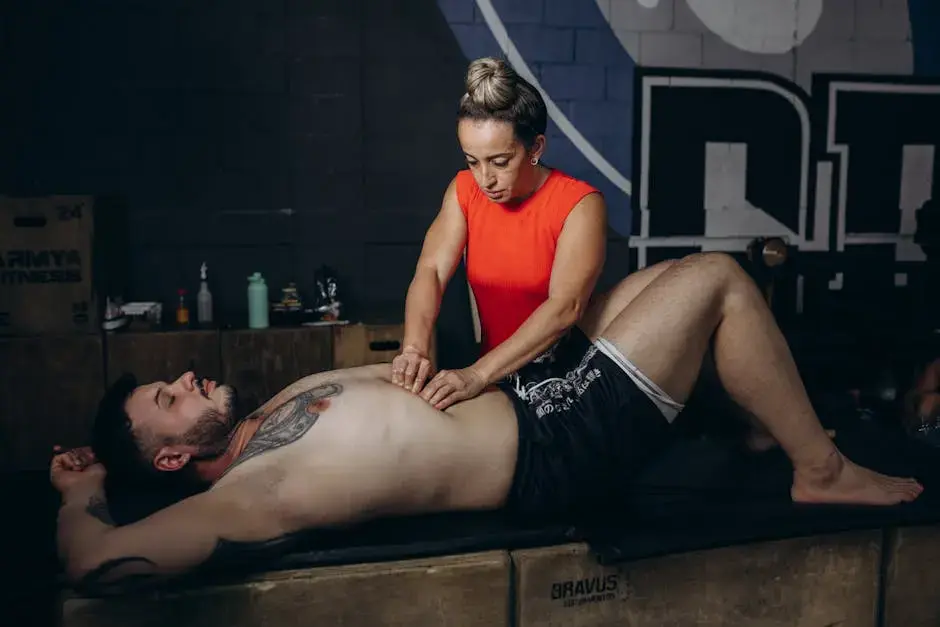7 Ways Therapeutic Massage Can Improve Athletic Performance
- Seona seona@usestyle.ai
- Mar 16
- 4 min read
Athletes are always looking for ways to enhance their performance and accelerate recovery. One often overlooked method is therapeutic massage. This powerful technique not only helps alleviate muscle tension but also offers a multitude of benefits that can elevate performance to the next level. In this article, we’ll explore seven remarkable ways therapeutic massage can be a game changer for athletes.

1. Enhancing Flexibility and Range of Motion
Therapeutic massage can play a crucial role in improving flexibility and range of motion. By loosening tight muscles and connective tissues, athletes can achieve a greater range of motion, which is vital for optimal performance in any sport.
Imagine stepping onto the field or court, feeling limber and ready to perform at your best. Regular sessions of therapeutic massage can help you attain that ideal state. Not only does it reduce stiffness, but it also encourages the body to adapt to increased demands, leading to a more fluid and graceful performance.
Moreover, the benefits extend beyond just physical flexibility. When an athlete feels more open and unrestricted in their movements, their confidence naturally grows. As they become more attuned to their body, they can engage in their sport with greater assurance, which can be a game changer when it comes to competitive environments.
2. Accelerating Recovery After Intense Workouts
Post-exercise recovery is essential for peak performance. Therapeutic massage helps reduce muscle soreness and promotes faster healing by increasing blood flow and delivering essential nutrients to the muscles.
After a grueling workout, the body needs time to heal. Therapeutic massage facilitates this process by flushing out metabolic waste and allowing fresh blood to flow to tired muscles. In fact, many athletes swear by scheduling a massage right after intense training to kickstart their recovery.
The results are often tangible: reduced soreness, less downtime, and a quicker return to training. Consequently, athletes who capitalize on therapeutic massage find themselves not just recovering faster but also pushing their limits more regularly, as they can better manage the natural wear and tear of rigorous athletic activities.
3. Reducing Muscle Tension and Pain
Muscle tension can hinder an athlete's performance. Therapeutic massage effectively targets areas of tightness, alleviating pain and allowing athletes to train more effectively and comfortably.
Dealing with persistent muscle tightness can wreak havoc on an athlete’s training schedule. Therapeutic massage not only provides immediate relief but also tackles the root issues that cause chronic tension. By identifying and releasing these tight spots, cyclists can pedal with more power, and runners can stride further without discomfort.
Additionally, the mental impact of pain relief cannot be understated. When athletes are free of discomfort, they can focus entirely on their performance rather than the nagging distractions of tension. This clarity often translates into improved outcomes during competitions and training sessions.
4. Improving Mental Focus and Clarity
Therapeutic massage is not just about the body; it also promotes mental clarity. The relaxation experienced during a massage can reduce anxiety and stress, allowing athletes to maintain better focus during competitions.
Stress can be detrimental to performance, leading to disarray and diminished focus when it matters most. By integrating therapeutic massage into their routine, athletes often find a profound improvement in their mental state. With the worries of daily life temporarily eased, it's easier to hone in on the skills that define them.
In essence, a clear mind enhances decision-making and reaction times, making all the difference in high-stakes scenarios. Athletes who regularly engage in therapeutic massage not only optimize their physical capability but also sharpen their competitive edge through mental preparation.
5. Preventing Injuries with Regular Sessions
Regular therapeutic massage can help identify potential problem areas before they become injuries. By addressing these issues early, athletes can avoid time away from training and competition.
Think of therapeutic massage as a proactive ally in your athletic journey. By focusing on flexibility and addressing tightness before it escalates, athletes can enhance their long-term performance and longevity in their sport.
This attention to detail ensures that minor discomforts do not transform into serious injuries. Thus, athletes who prioritize massage not only enhance their current performance but also safeguard their future ambitions.
6. Boosting Blood Circulation for Optimal Performance
Enhanced blood circulation is a key benefit of therapeutic massage. It allows for better oxygen and nutrient delivery to the muscles, which is essential for sustained energy and endurance during performance.
When blood flow is maximized, energy levels rise, allowing athletes to give their all during training sessions and competitions. This spike in vitality can often be felt even after just one session, leaving athletes eager to resume their routine with renewed vigor.
Furthermore, improved circulation can help with overall recovery, ensuring that athletes can bounce back from physically demanding sessions effectively. This holistic approach fosters a foundation for both short-term success and long-lasting health.
7. Fostering a Stronger Mind-Body Connection
Therapeutic massage encourages athletes to tune into their bodies, fostering a better connection between mind and body. This awareness can lead to improved techniques and strategies during training and competition.
The practice of mindfulness and body awareness can revolutionize how athletes approach their sport. By understanding their body's signals through massage, they become more adept at modifying their techniques, adjusting their training intensity, and ultimately enhancing their performance.
This heightened sense of awareness often results in fewer injuries and a more intuitive grasp of the demands of their sport. With each session, athletes strengthen that important bond, fine-tuning both their mental and physical game.
Comments